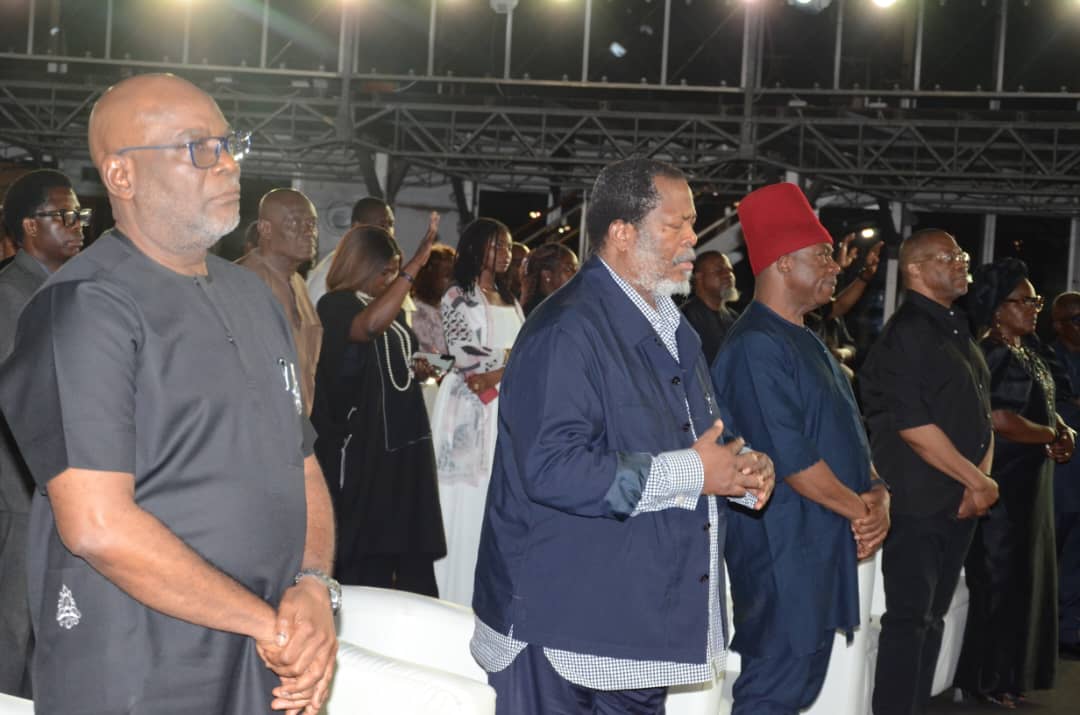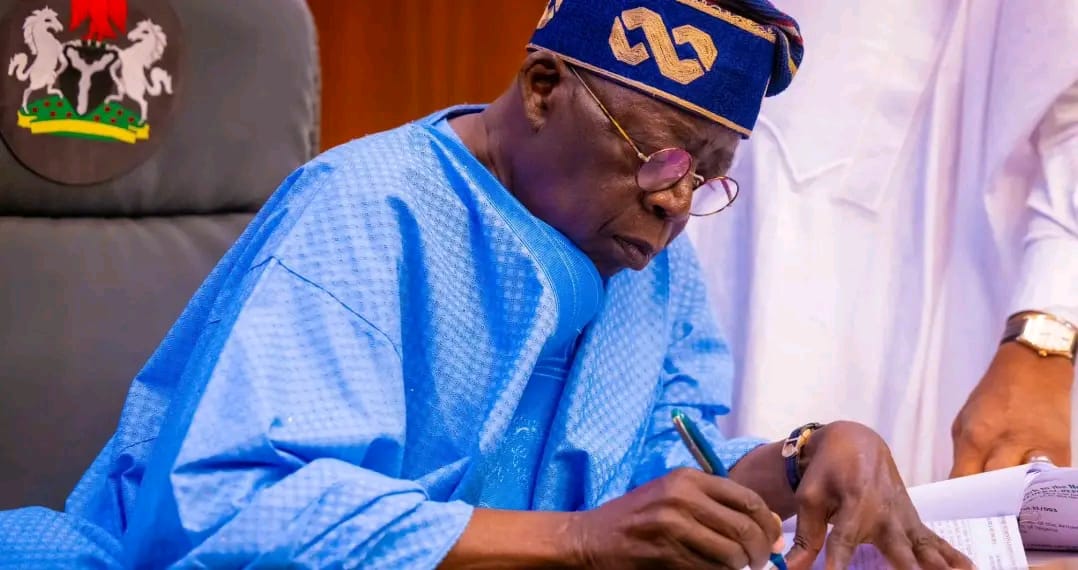The candlelight flickered against the dark October sky at Thisday Dome in Abuja. Faces half-lit by the soft glow stared silently toward a giant screen that projected the smiling image of Somtochukwu Christelle Maduagwu, the young Arise News anchor whose promising life was cut short during an armed robbery attack just two weeks earlier.
Her colleagues called her “Somie,” her friends called her “Sunshine.” That night, both names floated through the air like prayer.
It was a night of remembrance and reckoning.
The hall was filled with the scent of fresh roses and quiet grief. In the corner, a group of journalists from Arise News huddled close, many still in disbelief that their colleague, the bright, articulate voice who had once commanded the morning news, was now the subject of a memorial.
When Senator Adams Oshiomhole rose to speak, the gathering fell silent. His voice carried both the weight of authority and the tremor of emotion.
“There is nothing we are going to see here that will ease the pain of losing your daughter,” he began slowly, his words steady but heavy. “God, the Creator, does not give any human the power to decide when we are born or when we die.”
His reflection wandered from philosophy to grief, from public service to purpose. He confessed he had not known her personally but had been struck by her courage and clarity.
Watching clips of her work, he said, revealed a woman deeply troubled by Nigeria’s imperfections, yet unwilling to merely complain.
“She wasn’t born to lament society’s flaws,” Oshiomhole said, his voice softening. “She was born to confront them.”
The audience murmured in agreement.
Somtochukwu had been more than a journalist. She was a voice of conscience. In her broadcasts, she challenged leaders, questioned policies, and illuminated the struggles of everyday Nigerians with rare empathy. Colleagues often recalled how she would say, “We can’t fix Nigeria by pretending it’s fine.”
Oshiomhole continued, almost as if speaking to her spirit:
“She didn’t chase fame or fortune. She chose a platform that gave her a voice — to criticise, to engage, to trouble those with the power to make this country better.”
Then came the pause, that collective, painful silence that falls when words become insufficient. The senator bowed his head. “She has played her part,” he concluded, his voice breaking slightly. “May the Lord grant her a special place in paradise.”
Senator Victor Umeh also spoke, his tone fatherly and subdued. He began not with politics, but with a story, the morning he learned of her death.
“My son ran into my room crying,” he recalled, eyes glistening. “He said there had been a robbery attack. Minutes later, her cousin called from Atlanta. I couldn’t believe what I was hearing.”
The senator’s story spilled into sorrow. He spoke of how the news had spread like wildfire across the world, from Abuja to London, from Arise News studios to the hearts of ordinary Nigerians who had come to admire the young anchor’s fearless reporting.
“Such a beautiful girl,” Umeh lamented. “Full of promise. Driven by the desire to serve others. It hurts deeply, but her impact will outlive her years.”
He drew on history and faith, recalling the stories of young saints canonised by the Catholic Church, one at 15, another at 24. Their short lives, he said, proved that “the number of years you live does not matter; it is the impact you make.”
“Somtochukwu lived barely three decades,” he added. “But her flame will not go out. Her name will be remembered long after us.”
As the audience nodded and wiped away tears, the choir began a solemn hymn — “God be with you till we meet again.”
Then the priest stepped forward. In his simple white cassock, he did not dwell on loss. Instead, he offered what he called “a reality check.”
“Death is not an evil thing,” he began. “It is a certainty. It is the only thing we all share, yet the one we fear most.”
His words echoed through the garden. “There is no timeline for death,” he continued. “It can come to anyone, at any time. The question is not if, but how prepared we are.”
The priest reminded the mourners that Somtochukwu’s life was a reminder to live deliberately, to love God, to love others, and to make small but meaningful impacts.
“We do not need to build monuments to be remembered,” he said gently. “Sometimes, a smile, a kind word, a small act of justice, these are the true memorials that outlive us.”
In the back row, Somtochukwu’s colleagues held each other close. Some whispered prayers, others stared blankly at the candle flames.
Her mother, face veiled, clasped a rosary. Her father sat beside her, motionless, the image of a man struck by a wound too deep for words.
As the evening wore on, the lights from the city below Abuja twinkled faintly, as if bowing in tribute. The candles melted slowly into waxy puddles, their flames dancing in the wind.
A final video montage played — clips of Somtochukwu on set: reading headlines, moderating fiery debates, laughing off-air. The screen faded to black with her last on-air words:
“Nigeria can rise — but only if we care enough to fix what’s broken.”
A soft sob rippled through the crowd.
When the night ended, there were no grand speeches, no slogans. Only the sound of quiet footsteps and whispered goodbyes.
In death, as in life, Somtochukwu Maduagwu had managed to do what she always did best, make Nigeria stop, listen, and reflect.
And though her voice is gone from the studio lights, her words, sharp, sincere, and full of hope, will echo long after the cameras have dimmed.
May her light never fade.





